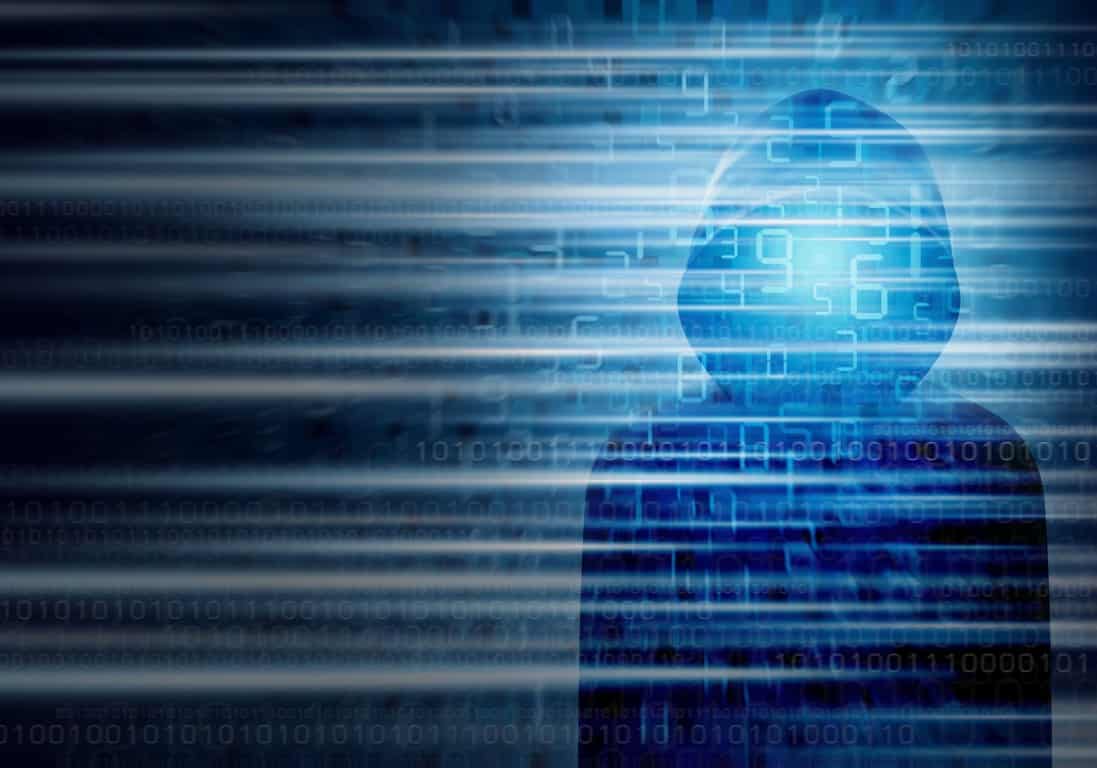
Related to Information Technology (IT), “cyber” is a word we frequently see nowadays. From cybersecurity to cybercrime and from cyberbullying to cyberlaw, many of us still do not understand the exact meaning of cyber, this mysterious word. What does cyber mean? How did the word originate? Who coined it? You will find answers to all these questions and more in our blog. Enjoy reading!
What Cyber Mean?
Cyber is a compound morpheme that connotes a relationship with anything related to modern computing and technology. It is used in the formation of words related to computers, computer networks, and virtual reality. All forms of computing in the period between the 1980s and 1990s do not attract this term.
What is the Origin of Cyber?
So, how did the word “cyber” originate? It originated from the Greek word “Kubernetes,” which means the steersman or the governor. In the late 1940s, the mathematician Norbert Wiener coined the term “cybernetics” from this Greek word. Related to the idea of governing, cybernetics is the scientific study of communication and automatic control systems in machines and living things.
In the late 1990s, anything related to the internet was cyber, like cybersecurity, cybercrime, cyberlaw, and so on. Then, the worldwide use of the word started to disappear gradually in the early 2000s. However, it remains alive in security terminology.
What Does Cyber Mean? Is It a Synonym For E-, Net, Online, Digital, and Virtual?
Here comes the question: are cyber, e-, net, online, digital, and virtual interchangeable? Since “cyber” is widely used in crime and security terminology nowadays, subtle trends in the use and implications of other prefixes have emerged. Let’s dive deeper into the etymology of each of these prefixes.
E- is the abbreviation for electronic. Typically used for commerce, e-commerce represents the beginning of commercialisation on the internet. Besides, there is e-learning that describes the process of learning remotely on the internet.
In the whole world of the internet, digital refers to only two digits; 0 and 1. All programmes and software start with these two digits. That’s why the word was used in development circles in the past to represent the digital divide. Today, the word refers to the systems or devices that store or process data according to a set of instructions, encompassing discrete or binary digits.
Net is short for the network. It refers to several computers and other devices connected to each other so that information and equipment can be shared. Nowadays, it describes the internet.
Similarly, online is anything that is controlled by, connected to, or available through a system, especially a computer or a telecommunication system like the internet. It can also refer to a specific webpage or a personal activity.
Virtual is widely used during the coronavirus lockdown. We have recently heard many words like virtual meetings or virtual classes. It refers to something that has no physical existence but appears to do so through a computer or a device. The word emerged from combining the ideas of the intangible reality or the inability to touch things and the false reality or the reality that does not exist.
Is Cyber a Free-Standing Word?
Some people prefer to write “cyber” as a free-standing word. However, some other people use it in a hyphenated compound noun or a closed compound noun without any space (as one word). Which form is right? Let’s find out together in the following lines!
Linguistically, cyber is a prefix, a bound morpheme that combines with root words to form new words. Similar to neo and bio, it cannot stand alone as a word. Most dictionaries, like Oxford, Cambridge, and Macmillan Dictionary, accept the one-word form. For example, cybercrime and cyberfraud are usually written as closed compound nouns.
Mostly, “cyber” is used as a combining form. However, it sometimes comes as an adjective. In this case, it can be a free morpheme like in Cyber Monday.
“Cyber” may also come as a noun. Informally, it is the short form for cybersecurity in specific and computing in general.

What Does Cyber Mean in These Words? | Common Words Prefixed With “Cyber”
There are a lot of words prefixed with “cyber.” Here are the most common words that feature the prefix “cyber” and their meaning.
Cybernetics
First, cybernetics is the science of communication and automatic control systems in machines and living things. It uses combinations of feedback loops. A feedback loop is part of a system in which some or all outputs are used as inputs for future operations.
Cyberspace
Cyberspace is the virtual computer world or the global technology environment. It is the electronic medium that facilitates online communication and data exchange created by worldwide interconnected computers and computer networks.
The American-Canadian author William Gibson coined the term “cyberspace” for the first time. In the 1980s, he mentioned it in his published story, then in his science-fiction novel Neuromancer. As Gibson defined it, cyberspace is the process of creating a computer network in a world full of artificially intelligent beings.
Generally, cyberspace is any system that has a significant user base or a well-designed user base. It is the location where people interact together on the internet. Some examples of cyberspace are the home of Facebook and instant-messaging conversations, blogs and blogging software, online games, and chat rooms.
Cybersystem
Utilising cyberspace, cybersystem is a system of interlinked computers. It includes information infrastructure and people and entities involved in the business processes.
Cybercafé
Also known as an internet café, cybercafé provides computers with internet access to the public. The fee is charged based on the time you spend there.
Cyberagent
Any agent who operates on the internet or in cyberspace is cyberagent.
Cybercommunity
Similarly, cybercommunity is a community on the internet or in cyberspace. It is a group of internet users who post about a specific topic and participate regularly in social media. Connecting with anyone from anywhere in the globe, this virtual community interact and communicate through forums, blogs, and instant messaging platforms.
Cybertalk
The language used on the internet or in cyberspace is cybertalk.
Cyberculture
Clearly, cyberculture is a set of shared attitudes, practices, and goals brought about by the widespread use of computers, computer networks, and the internet for business, communication, and entertainment.
Cybercrime
ِAs long as the internet and computers are widely spreading across various industries nowadays, crimes involving the internet are increasing. Also called computer crime, cybercrime is any illegal, malicious activity that either uses or targets a computer, a computer network, or a networked device.
Cybercrime includes a wide range of malicious activities, like violating data and trafficking. Stealing credit cards to sell the victim’s information or create new identities for criminals is another type of cybercrime. By knowing the Personal Identification Number (PIN) code, cybercriminals can also create fake cards and withdraw a huge amount of money from the victim’s account.

Cybercriminals
The individuals or teams who use technology to commit these illegal, malicious acts on networks or computer systems are cybercriminals. They steal sensitive information and personal data to generate profits.
Cyberfraud
While cybercrime depends on hacking, cyberfraud depends on misguiding, cheating, tricking, or fooling internet users. It is the use of the internet to get money, goods, or any other thing illegally. To steal or corrupt the user’s financial and personal information stored online, cyberfraudsters use phishing emails, email scams, fake items for online sales and more.
Cyberattack
Including password attacks and malware, a cyberattack is an unauthorised access to confidential or private information on computer systems or networks. It can also disrupt, disable, destroy, or control any computer environment. Cyberattackers use malicious links to gain access to your computer and make their fraudulent and illegal purposes.
Cybertheft
Cybertheft is the act of stealing someone’s property or interfering with their use and enjoyment of this property. Like cyberattacks, clicking on fake information and malicious links on the internet allows cyberthieves to access the victim’s personal or financial data and use them in criminal acts.
Plagiarism is one of the common types of cybertheft. Stealing someone else’s work or ideas and presenting them as your original work violates the copyright and breaches writing ethics. Embezzlement is also another type of cybertheft. It might occur when an employee accesses the payroll system and modifies the payment or purchases personal items using the company’s funds.
Cyberbullying
Cyberbullying is any form of online harassment or bullying that occurs on any digital device, like computers, mobile phones, and tablets. It includes spreading rumours or secrets about someone online or sending harmful, mean, negative, or false texts to someone. Hacking into someone’s social networking profiles is also one of the cyberbullying activities.
Cyberrevolution
Cyberrevolution is also among the cyber-related terms. Meaning a cyberspace revolution, it is a revolution that is based on the share of information through computers.
Cyberterrorism
Another word that has the prefix “cyber” is cyberterrorism. Converging cyberspace and terrorism, cyberterrorism is the unlawful attacks or threats of attacks against computers, networks, or information systems (IS). It includes any cyberattack that intimidates or coerces the target population.
The conducted cyberattacks threaten or result in violent acts that lead to significant harm to the body, loss of life, severe economic loss, plane crashes, explosions, water contamination, and more. Its purpose is to achieve ideological or political gains.
To know more about cyberterrorism, you can read our blog: What is Cyberterrorism?
Cyberwarfare
Cyberwarfare is the use of digital attacks against an enemy nation-state. It causes damages comparable to that of actual warfare and/or disrupts the enemy state’s computers, vital systems, and networks. For example, computer viruses like Stuxnet Virus, Denial-of-Service (DoS) attacks, economic disruption, and espionage are some types of cyberwarfare attacks.
Cyberespionage
Similarly, cyberespionage or cyber spying is a cyberattack that seeks to steal and obtain sensitive information or intellectual property. To gain an advantage over them, cyberattackers steal data from a competitive company or government.
Cyberespionage differs slightly from cyberwarfare. The latter’s primary goal is to disrupt the systems of an enemy nation-state, regardless of anonymity. However, the main goal of cyberespionage is how to keep the cyberattacker hidden for as long as possible.
Cybervandalism
Unlike cyberespionage which aims at misusing or stealing sensitive data, cybervandalism seeks to damage or disable data only. Similar to traditional vandalism, cybervandalism is any destruction or damage that takes place on the internet, for example, website defacement.
Regardless of identity or motive, cybervandals aim to damage, disrupt, destroy, or disable data, networks, or computers. Consequently, this impacts businesses negatively, causing a bad reputation or financial loss.
Besides writing misleading data, cybervandals may deface a vulnerable website by creating malware, the abbreviated form of malicious software. This malware can damage electronic files. In addition, they can damage the elements of a system to interrupt their normal use. By developing this malware, cybervandals can disable a computer’s hard drive or server.
Cyberextortion
Cyberextortion or cyber blackmail is an umbrella term for a collection of cybercrimes. It can take many forms. For example, it occurs when cybercriminals hold confidential information or data about an individual or a company and threaten to share it unless they receive a payment.
An alternative way of cyberextortion is to disable systems or operations and threaten to share sensitive data if they do not receive money. They can also infect a computer system with a virus, ransomware, or denial-of-service (DDoS) attack and ask for money to remove it.
Cyberthreat
Any malicious act that seeks to disrupt digital life in general or steal or damage data is cyberthreat or cybersecurity threat. Its common types are DoS attacks, data breaches, spear phishing, malware, ransomware, and more.
Cybermap
A cyberthreat map, cyberattack map, or cybermap is a real-time map that represents computer security attacks anywhere at any time. It also gives information on how to confront assaults. Norse and Kaspersky have the most common cybermaps nowadays.
Cyberstalking
One of the words that are prefixed with cyber is cyberstalking. It is the use of the internet or any other electronic means to stalk or harass an individual, an organization, or a group of people. Also, it is the act of following or watching someone for a long time annoyingly or frighteningly. It may involve identity theft, defamation, sexual harassment, libel, and more.
Cyberbreach
Another term that has the prefix cyber is cyberbreach. It means a breach in the security of a computer system. cyberbreach occurs when cybercriminals access a network or a computer and steal local files. Alternatively, it can happen when they bypass network security remotely. Methods of cyberbreach include malware attacks, hacking, and the loss of a hard drive.
Cyberhygiene
Like personal hygiene, cyberhygiene is a set of practices that secure networks and ensure the safe handling of sensitive data. Good examples include installing antivirus and updating operating systems regularly. Moreover, using firewalls to prevent unauthorised users from getting information is an example of cyberhygiene.
Cybersafety
Cybersafety is another cyber-related term. It is the use of Information and Communications Technology (ICT) safely and responsibly. Unlike cybersecurity, it is the process of protecting users from harmful content and activities on the internet. The user, therefore, can enjoy the internet resources, online games, and social media while they are safe online.
Cybersecurity
The technology and process of protecting networks, critical computer systems, and sensitive information from unauthorised online access and cyberattacks is cybersecurity. It is sometimes called computer security or information technology security.
It includes network security, application security, critical infrastructure security, and cloud security. This process is significant to prevent the disruption of the provided services and the theft of or damage to hardware, software, and electronic data.
For further information, read our blog: Cybersecurity Technical FAQs for Protecting Your PC.

Cybersecurity skills
The range of skills required in using computer technology is cybersecurity skills or cyber skills. It is a skill set that includes essential and advanced technical expertise and skills, strategic management skills, and planning and organisation skills.
Police CyberAlarm
To improve cybersecurity, Police CyberAlarm is a free tool that detects malicious cyberactivities. It also helps users understand and monitor these malicious activities. Importantly, the tool is made of two parts: monitoring and vulnerability scanning.
Acting as a CCTV camera, Police CyberAlarm monitors the traffic and collects traffic logs from firewalls and internet gateways. Additionally, it provides reports on suspected and malicious activities. This will enable users to minimise vulnerabilities accordingly.
Regarding vulnerability scanning, it scans an organisation’s website and the external IP addresses. Then, it provides regular reports on the well-known found vulnerabilities.
Cyberpolice
The people who are responsible for fighting cybercrimes and enforcing censorship are cyberpolice. This term refers to police departments, government agencies, and other organisations concerned with policing the internet. It is also known as cybercops or internet police.
Cybercop
A cybercop is a member of the cyberpolice. This person attempts to enforce netiquette, the rules of polite and correct behaviour among internet users.
Cyberlaw
Since the internet and technology are rapidly developing, the laws that deal with electronic communications have developed, too. Cyberlaw is one of the newest areas of the legal system. It deals with the internet, computing, cyberspace, IS, software, hardware, and related legal issues.
Referred to as the Law of the Internet, cyberlaw is also known as cybercrime law, digital law, IT law, and sometimes ICT law. It provides legal protection to individuals and companies that use the internet. Additionally, it helps control cybercrimes and protect intellectual property.
Cyberethics
Cyberethics is a branch of applied ethics that studies moral dilemmas, ethical questions, and legal and social issues. It arises when digital technologies and global online environments have emerged. Sometimes, cyberethics may be known as internet ethics, computer ethics, and information ethics.
Cyberpunk
In 1980, the American author Bruce Bethke coined the term in his short story of the same name. It is a subgenre of science fiction in a futuristic lawless subculture of an oppressive society controlled by computers and technology.
Alongside societal collapse, this dystopian world features futuristic scientific and technological advancements, including artificial intelligence and cybernetics. Additionally, the themes may involve class uprising, anarchy, and gang warfare.
Postcyberpunk
Arising from cyberpunk and other science fiction, postcyberpunk is a fiction genre with the absence of the dystopian setting associated with cyberpunk.
Cyberprep
Cyberprep is similar to postcyberpunk. Rather than a dystopian society, cyberprep is the application of all the technological and scientific advancements of cyberpunk speculation to a utopian society.
Cyberghetto
Another word that started with the prefix cyber is cyberghetto. It is the intention of creating a home in cyberspace for marginalized groups of people.
Cyberart
Cyberarts or cyberart is the class of art created with the help of computer software or hardware. It uses computers to design an integral part or to adjust traditionally produced art that is scanned. For example, paintings and photographs are among different cyberart forms.
What Does Cyber Mean When it Collocates With Other Words?
As we mentioned before, “cyber” always comes as a bound morpheme, but it may come as an adjective. Here is a list of the common words that collocate with “cyber.”
Cyber Monday
Following the Thanksgiving weekend and Black Friday, Cyber Monday is an e-commerce term. It refers to the biggest day for online sales.

Cyber-Enabled Crime
Including theft, harassment, and fraud, a cyber-enabled crime is a traditional crime that can be committed without computers. However, computers, computer networks, and other forms of ICT can enable and increase it in certain circumstances.
Cyber-Dependent Crime
Unlike cyber-enabled crime, a cyber-dependent crime cannot be committed without the use of computers, computer networks, or any other form of ICT. Hacking, ransomware, and DDoS attacks are some examples of cyber-dependent crimes.
To read the difference between cyber-enabled crimes and cyber-dependent crimes in detail, check out our article.
Cyber Forensics
Cyber forensics is a branch of digital forensic science that is also known as computer forensics. It is the process of finding evidence in computers and digital storage media and transforming it into hardware proof to present in court.
Cyber forensics is the application of scientifically-proven methods to extract, gather, process, and interpret data as proof of a crime that involves electronic devices. It uses digital evidence to provide a conclusive description of cybercrime activities.
Cyber Protection
When data protection integrates with cybersecurity, it forms cyber protection. Unlike cybersecurity which focuses on guarding and defending systems and networks, cyber protection focuses on protecting the data itself.
What Does Cyber Mean When it Combines With Other Words? | Portmanteau Words That Combine “Cyber” and Other Words
A portmanteau word is a blend word invented by combining the beginning of one word and the end of another and, therefore, keeping the meaning of both words. The following is a list of the portmanteau words that combine the beginning of the word “cyber” and other words.
Cyborg
Coined in 1960, cyborg combines the words “cybernetic” and “organism.” It is a being that consists of both organic and biomechatronic body parts. A person could be a cyborg when s/he receives implants like artificial heart valves, insulin pumps, or cochlear implants. Obviously, it helps disabled people function like normal humans.
Cyberdelic
Now known as a virtual core, cyberdelic combines “cyber” and “psychedelic.” It is the fusion of cyberculture and the psychedelic subculture. This, consequently, formed a new counterculture in the 1980s and 1990s.
The Psychedelic era was a time of artistic, musical, and social change. Psychedelic art is the art, graphics, or visual displays related to or inspired by psychedelic experiences or hallucinations. However, cyberdelic art is the calculation of fractal objects followed by the representation of the calculation results as still images, animations, algorithmic music, or other media.
On the other hand, cyberdelic rave dance parties are where performers and DJs play psychedelic trance music. This music accompanies laser light shows, projected images, and artificial fog.
Cybrarian
Cybrarian is another portmanteau that is the blend of “cyber” and “librarian.” It means someone whose job is to find, collect, and manage the information available on the World Wide Web.
Cybernaut
Blending “cyber” and “astronaut,” a cybernaut is an adventurous explorer of the internet. To illustrate, this person spends time online communicating and socially interacting through social media and in forums.
These are the most important cyber-related terms. In our internet glossary, you will know about more terms related to the internet and online harassment methods.
What else do you know about cyber? Which term did you know before? And which one have you learnt about for the first time in this blog? Share your thoughts with us in the comments below.
